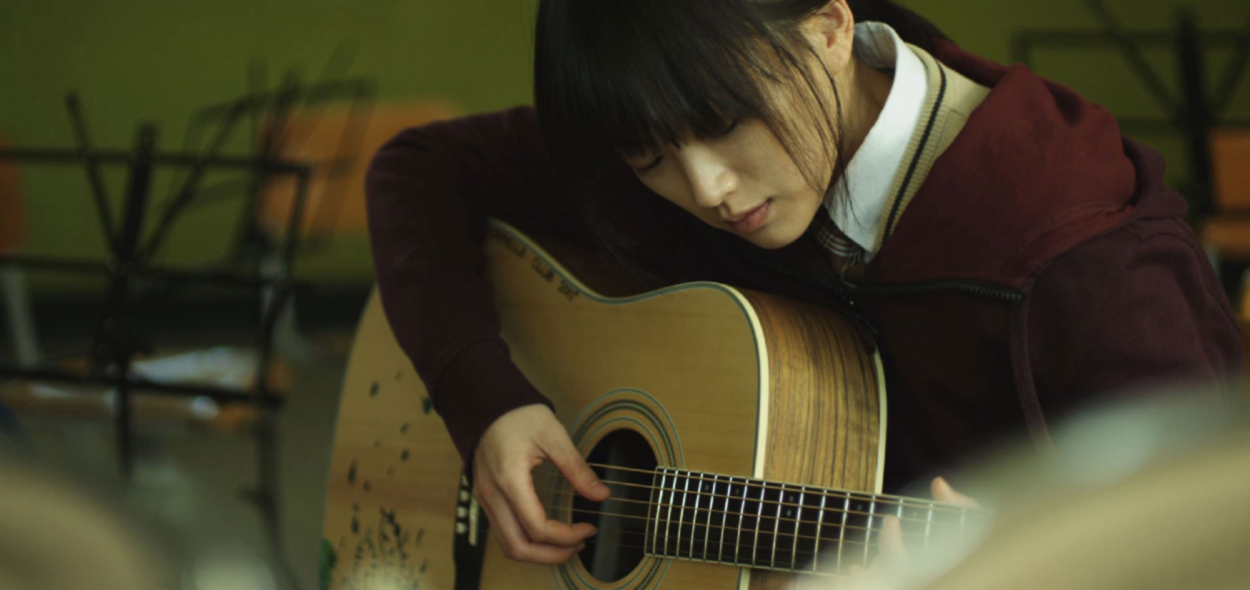
A character study grappling with important and confronting issues, Han Gong-ju, from writer/director Lee Su-jin, falters with regards to the bigger picture. Select elements, including cinematography and some strong acting performances, allow certain scenes to have a strong emotional resonance, yet on the whole the film’s reliance on an uncompelling structure is its downfall. The film is almost something memorable, it contains the elements of many strong dramas and compelling character studies yet doesn’t manage to ground itself enough in reality, both in terms of its screenplay and its editing. To paraphrase Nik Grozdanović over at The Playlist, the sense of ‘failed potential’ becomes potent in the latter scenes of the film, cheap and overly simplistic reveals in place of serious emotional discussion.
A clear character study in premise, we follow Han Gong-ju (played admirably by Chun Woo-hee), who, following a mysterious ‘incident’, is quickly moved to a new school surreptitiously. We learn that she has an absentee father, she was abandoned by her mother some years earlier and that she is haunted by the spectre of a school friend. Understandably, as a result, she is very private and insular, preferring the solace of working in a convenience store or a swimming pool. Thematically the film seems to centre around relationships and connections, perhaps moreso on the lack thereof. Rather than coalescing into a broader comment on human interaction, these ‘relationships’ differ wildly in the quality of their depiction. Whilst peppered with strong emotional beats, her relationship with her former teacher’s mother (Lee Young-Ian) is blunt with regards to the replacement of a ‘mother figure’. Her friendship that forms with Eun-Hee, however, is very strong throughout, mainly as a result of Jeong In-seon’s supporting performance. She brings a much needed breath of life and joy to the picture and its unfortunate that the tonal fit of their storyline within the film as a whole is jarring, particularly with regards to the very weak ‘music’ subplot.
The film opens with a voiceover in which the titular character talks about hearing music in everything in life. By virtue of that construction, we’re led to believe that a connection to music is vital to her identity or approach in life, yet the film never deals with music effectively, bar a scene in which she spies her new mother figure dancing with her lover. The film’s sound design also leaves much to be desired, the grating interjections of folk pop oddly juxtaposed with the generic and uninspired score.
The screenplay of the film centres the narrative around a mystery. Character stakes are built around this unknown event that becomes fairly easy to ascertain as the film progresses; the clues left are fairly unsubtle. Once it becomes clear the true horror that unfolded in flashback sequences, the film is content with just playing that recollection fairly straight. We go back to it time and time again without any new resonance. It should be said, though, that the dramatic motivation of the film centers around important issues – victim blaming, guilt, perception, male sexual aggression and the pack mentality. There are scenes within the film, in particular one involving a large group of parents, that is very effective in highlighting society’s willful ignorance of victims of assault. However, the film only deals with these in a simplistic manner, borrowing motifs from other films (most notably, the act of swimming as a coping mechanism from Three Colours: Blue) and sloppily setting up emotional payoffs. The ending of the film is a particularly egregious example.
The editing of the film places the viewer in a state of confusion. In some scenes it isn’t clear if we are in the past or present, this confusion not enhancing the tonal buildup, rather acting as a distraction. Director Lee has said in an interview that he wanted to focus on reaction rather than the incident itself, as the film was supposedly based on a true story he wanted to harness the idea of what is often left unseen or unsaid. Whilst we find ourselves often in contemplation with Miss Han, the prolonged first half meanders and the lack of information proves more frustrating than intriguing.
As aforementioned, the film feels like it could have been something memorable, with an important focus and some impressive technical elements. However, the treatment of the narrative drags the film down and it ends merely as a half-hearted discussion than a truly effective character study.
